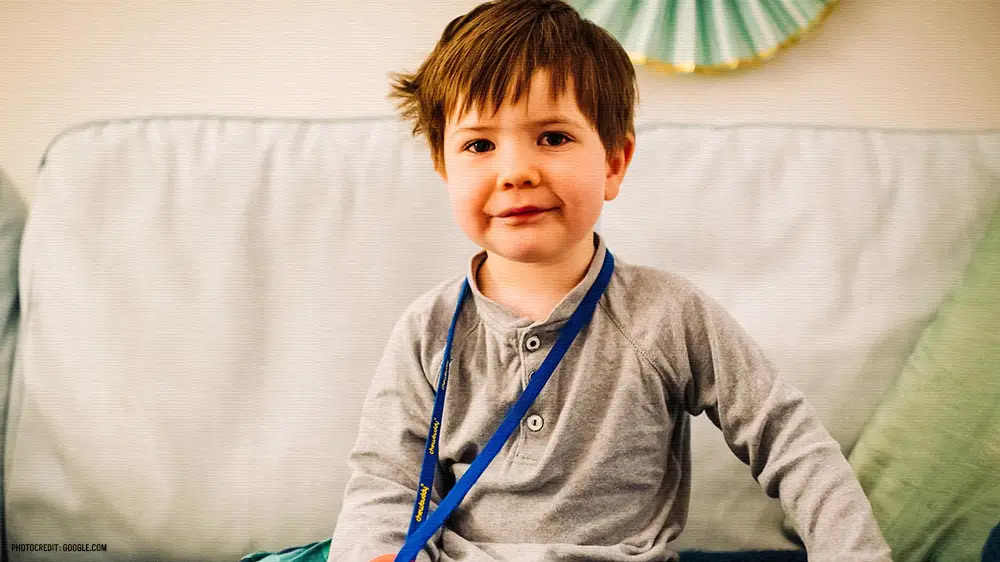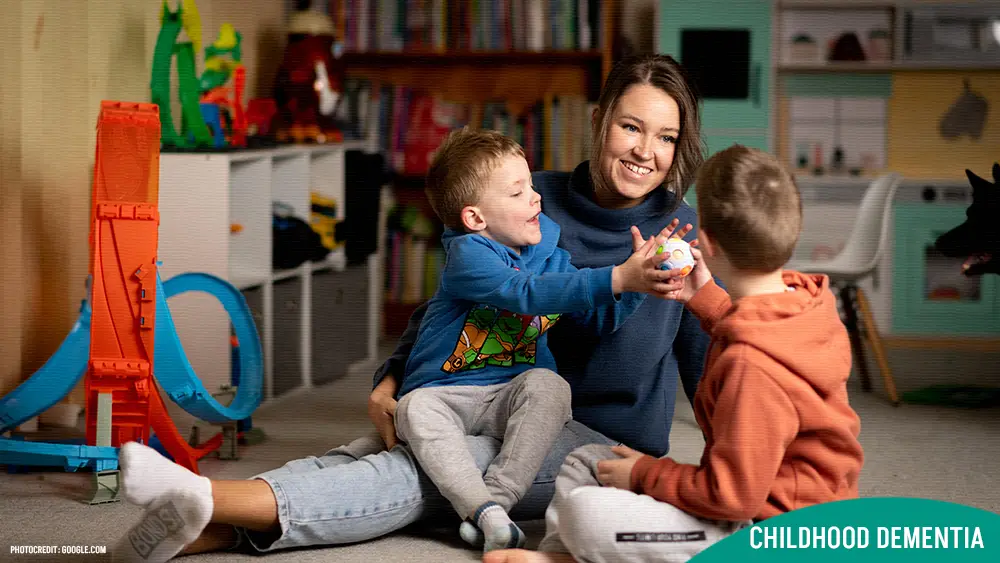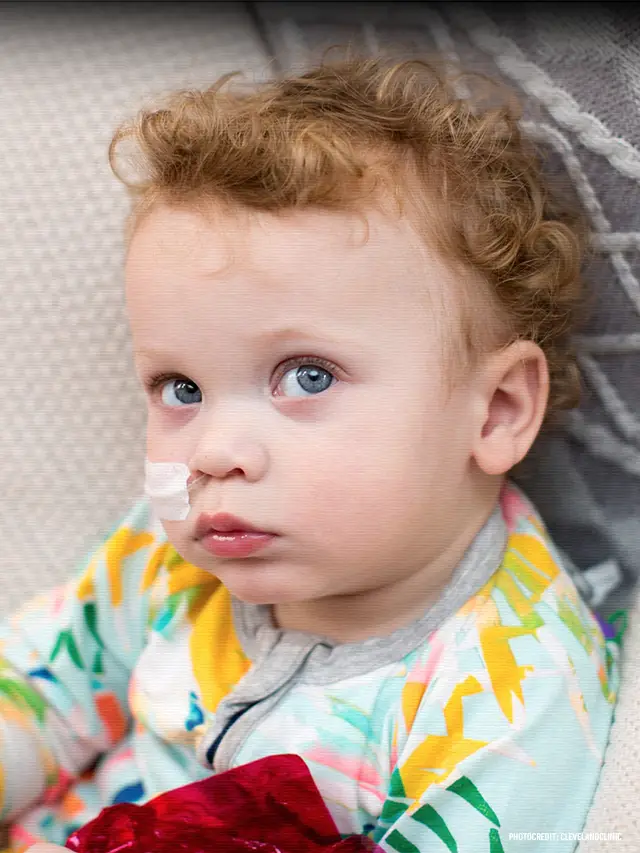
HEALTH BLOG
What is Childhood Dementia and Its Types, Symptoms, and Causes?
-
Rahul Priydarss
This article details a study about Childhood dementia resulting from progressive brain damage and is caused by more than 100 rare genetic disorders. These conditions are genetic and children are born with them. You may be familiar with some of the symptoms of adult dementia. Children also suffer from symptoms like confusion, loss of memory, loss of speech, and much more.
What is Childhood Dementia:
Childhood dementia is a rare and devastating condition characterized by the progressive loss of cognitive function in children under the age of 18. While dementia is commonly associated with older adults, it can also affect individuals in their childhood years, albeit with distinct characteristics and challenges.
Children with dementia experience a gradual decline in various cognitive abilities, including memory, language, judgment, and problem-solving skills. This decline is often accompanied by behavioral changes, motor dysfunction, and a decline in overall physical health.

Table of Contents
Importance of Understanding Childhood Dementia:
Early detection and intervention: Recognizing the signs and symptoms of childhood dementia allows for early detection and intervention. Early diagnosis enables healthcare professionals to implement appropriate treatment strategies and support services, potentially slowing disease progression and improving outcomes for affected children.
Improving quality of life: Understanding childhood dementia helps in the development of tailored care plans aimed at enhancing the quality of life for affected children and their families. By addressing specific symptoms and providing targeted support, healthcare providers can help reduce distress and optimize functioning, helping children maintain their dignity and independence for as long as possible.
Support for families and caregivers: Childhood dementia not only affects the affected child, but also places a significant emotional, physical, and financial burden on their families and caregivers. Understanding the nature of the condition equips families with the knowledge and resources needed to cope effectively, access appropriate support services, and deal with the challenges associated with caregiving.
Promoting awareness and advocacy: The increasing understanding of childhood dementia promotes greater awareness and advocacy within the community. By increasing awareness of the prevalence, impact, and needs of children with dementia, advocates can foster empathy, reduce stigma, and advocate for better access to health services, research funding, and support programs.
Facilitating research and innovation: A comprehensive understanding of childhood dementia is essential to advance research and innovation in the field. By elucidating the underlying mechanisms, risk factors, and therapeutic targets associated with the condition, researchers can develop new treatments, diagnostic tools, and preventive strategies to improve outcomes for affected children and their families.
Prevention and risk reduction: Knowledge about the causes and risk factors of childhood dementia can inform preventive measures aimed at reducing the incidence and severity of the condition. By identifying genetic predispositions, environmental triggers, and modifiable risk factors, health care professionals can implement targeted interventions to reduce the risk of dementia in susceptible populations.
Types of Childhood Dementia:
Although the risk of developing dementia increases with age, people in their 40s and 50s can also develop dementia. The term ‘younger onset dementia’ is used to describe any type of dementia diagnosed in people under the age of 65. Visit the Younger Onset Dementia Hub to learn more.
- Alzheimer’s disease
- Vascular dementia
- Lewy Body disease
- Frontotemporal dementia
- Alcohol-related dementia
- Down syndrome and Alzheimer’s disease
- HIV associated dementia
Genetic Dementias:
Niemann-Pick Disease: This is a group of inherited metabolic disorders characterized by the accumulation of harmful substances in various organs, including the brain. Children with Niemann-Pick disease may experience neurological symptoms such as cognitive decline, seizures, and movement abnormalities.
Batten Disease (Neuronal Ceroid Lipofuscinoses): Batten disease is a group of rare genetic disorders that affect the nervous system. It is characterized by the buildup of lipopigments in the brain and other tissues, leading to progressive cognitive decline, vision loss, seizures, and motor impairment.
Rett Syndrome: Rett syndrome is a genetic disorder that primarily affects girls. It is caused by mutations in the MECP2 gene and is characterized by developmental regression, loss of purposeful hand skills, seizures, breathing abnormalities, and cognitive impairment.
Metabolic Dementias:
Mitochondrial Diseases: Mitochondrial diseases are genetic disorders affecting the mitochondria, the energy-producing structures within cells. These disorders can lead to neurological symptoms such as cognitive decline, seizures, movement disorders, and vision or hearing loss.
Mucopolysaccharidoses (MPS): MPS disorders are a group of metabolic disorders characterized by the accumulation of glycosaminoglycans in various tissues, including the brain. Children with MPS may experience cognitive decline, developmental delays, skeletal abnormalities, and neurological symptoms.
Infectious Dementias:
HIV-Associated Neurocognitive Disorders (HAND): HIV can affect the central nervous system, leading to cognitive impairment, behavioral changes, and motor dysfunction in children infected with the virus. HAND encompasses a spectrum of neurological disorders, ranging from mild cognitive impairment to severe dementia.
Progressive Multifocal Leukoencephalopathy (PML): PML is a rare and severe brain infection caused by the JC virus. It primarily affects immunocompromised individuals, including children with conditions such as HIV/AIDS or undergoing immunosuppressive therapy, leading to cognitive decline, motor deficits, and visual disturbances.
Traumatic Dementias:
Traumatic Brain Injury (TBI): Severe head trauma in children can result in long-term cognitive deficits, memory impairment, behavioral changes, and executive dysfunction. TBI-related dementia may develop immediately following the injury or manifest later in life due to neurodegenerative processes triggered by the trauma.

Causes of Childhood Dementia:
Genetic Factors:
Genetic mutations play a significant role in many cases of childhood dementia. Certain inherited genetic disorders can lead to progressive neurodegeneration and cognitive decline. Examples include:
Niemann-Pick Disease: This rare inherited metabolic disorder results from the deficiency of enzymes responsible for metabolizing lipids. It leads to the accumulation of harmful substances in cells, causing neurological symptoms such as dementia, seizures, and loss of motor skills.
Batten Disease: Also known as neuronal ceroid lipofuscinosis (NCL), Batten disease encompasses a group of inherited neurodegenerative disorders characterized by the abnormal buildup of lipopigments in cells. Children with Batten disease experience progressive cognitive decline, vision loss, seizures, and motor impairment.
Rett Syndrome: Rett syndrome is a rare genetic disorder that predominantly affects females. It is caused by mutations in the MECP2 gene and results in severe neurological and developmental impairment, including dementia-like symptoms, loss of speech and motor skills, seizures, and repetitive hand movements.
Metabolic Disorders:
Certain metabolic disorders can lead to childhood dementia due to abnormalities in biochemical processes essential for brain function. These disorders may impair energy production, neurotransmitter synthesis, or the breakdown of toxic substances, resulting in neurological dysfunction. Examples include:
Mitochondrial Diseases: Mitochondrial disorders affect the mitochondria, the cellular organelles responsible for producing energy. Dysfunction in mitochondrial function can lead to neurological symptoms such as dementia, seizures, developmental regression, and muscle weakness.
Mucopolysaccharidoses (MPS): MPS disorders are a group of inherited metabolic disorders characterized by the buildup of glycosaminoglycans (GAGs) in cells and tissues. Children with MPS may develop cognitive impairment, dementia, skeletal abnormalities, and organ dysfunction due to the progressive accumulation of GAGs in various organs, including the brain.
Infectious Causes:
Infections affecting the central nervous system can cause childhood dementia by directly damaging brain tissue, triggering inflammation, or inducing autoimmune responses. Examples include:
HIV-Associated Neurocognitive Disorders (HAND): HIV infection can lead to neurological complications, including dementia, in children who acquire the virus either vertically (from an infected mother) or horizontally (through exposure to infected blood or bodily fluids). HAND encompasses a spectrum of cognitive deficits, ranging from mild impairment to severe dementia.
Progressive Multifocal Leukoencephalopathy (PML): PML is a rare and severe brain infection caused by the JC virus. It primarily affects immunocompromised individuals, including children with conditions such as HIV/AIDS, leukemia, or undergoing immunosuppressive therapy. PML can lead to progressive cognitive decline, dementia, weakness, and visual disturbances.
Traumatic Brain Injury (TBI):
Severe head trauma resulting from accidents, falls, or physical abuse can cause irreversible damage to the brain, leading to cognitive impairment, memory loss, and behavioral changes. Children who sustain traumatic brain injuries may experience long-term cognitive deficits and functional impairment, resembling symptoms of dementia.
Symptoms of Childhood Dementia:
Childhood dementia, though relatively rare, manifests through a variety of symptoms that can significantly impact a child’s cognitive, behavioral, and physical functioning. These symptoms may vary depending on the underlying cause of the dementia, but some common signs include:
Cognitive Decline: Children with dementia may experience progressive deterioration in cognitive abilities, including memory loss, difficulty with learning and retaining new information, impaired judgment, and decreased problem-solving skills.
Language Impairment: A decline in language skills is often observed in children with dementia. They may struggle to express themselves verbally, have difficulty finding the right words, or experience comprehension difficulties when listening or reading.
Behavioral Changes: Children may exhibit behavior, mood, and personality alterations as dementia progresses. These changes can include increased irritability, agitation, restlessness, or withdrawal from social activities. Some children may display disinhibited behaviors, such as impulsivity or inappropriate social interactions.
Motor Dysfunction: Dementia can affect a child’s motor skills, leading to difficulties with coordination, balance, and movement control. Children may experience muscle stiffness, tremors, or involuntary movements, impacting their ability to perform daily activities such as walking, writing, or feeding themselves.
Emotional Distress: Children with dementia may experience emotional distress, including feelings of confusion, frustration, or anxiety about their changing abilities and perceptions. They may struggle to cope with the challenges of their condition and may require additional support to manage their emotional well-being.
Sleep Disturbances: Changes in sleep patterns are common in children with dementia. They may experience difficulties falling asleep, staying asleep, or maintaining a regular sleep-wake cycle, leading to daytime drowsiness and fatigue.
Loss of Social Skills: Children may exhibit a decline in social skills and interpersonal relationships due to dementia. They may have difficulty engaging in conversations, interpreting social cues, or understanding appropriate social behaviors, leading to social isolation and withdrawal from peers.
Regression: In some cases, children with dementia may exhibit regression in developmental milestones or previously acquired skills. This regression may manifest as loss of bladder or bowel control, inability to perform self-care tasks independently, or deterioration in academic performance.
Seizures: Seizures are a potential complication of childhood dementia, particularly in cases where the underlying cause involves neurological dysfunction or structural abnormalities in the brain. Seizures may present as convulsions, loss of consciousness, or abnormal movements and can further exacerbate cognitive decline and behavioral disturbances.
Progressive Decline: Perhaps the most significant symptom of childhood dementia is the progressive nature of the condition. Symptoms typically worsen over time, leading to a gradual decline in cognitive, behavioral, and physical functioning, ultimately impacting a child’s overall quality of life.
FAQs about Ischemic Optic Neuropathy:
A1: Childhood dementia, though relatively rare, manifests through a variety of symptoms that can significantly impact a child’s cognitive, behavioral, and physical functioning. These symptoms may vary depending on the underlying cause of the dementia, but some common signs include.
A2: There are more than 70 rare genetic disorders that cause dementia in children, and right now, they are affecting 700,000 people globally. Sadly, 75% of children with dementia have a life expectancy of only 18 years or less, and on average one person dies from childhood dementia every 11 minutes.
A3: No treatments exist to prevent or slow dementia caused by neurodegenerative diseases. 5 Treatment for NCL usually targets the symptoms. There is no cure for NCL genetic diseases. Children with childhood dementia likely require lifelong care.
A4: Symptoms of childhood dementia may appear in the youngest children and infants and progress rapidly. In other children, like Angelina, symptoms may not begin until they are teenagers. However, all children with dementia face a common challenge: childhood dementia is progressive.
A5: There are many reasons why children become forgetful, including stress and lack of sleep. Being hungry can also have a big impact. But sometimes when kids have trouble remembering information, they’re struggling with a skill called working memory.

-Please remember, to always consult with healthcare professionals or Doctors for personalized advice related to medical conditions.
Conclusion:
Childhood Dementia is a complex and devastating condition that requires comprehensive care and support. By understanding its types, causes, symptoms, and treatment options, families can better navigate the challenges associated with this diagnosis. While there are currently no cures, ongoing research offers hope for improved outcomes and enhanced quality of life for affected individuals and their loved ones.




